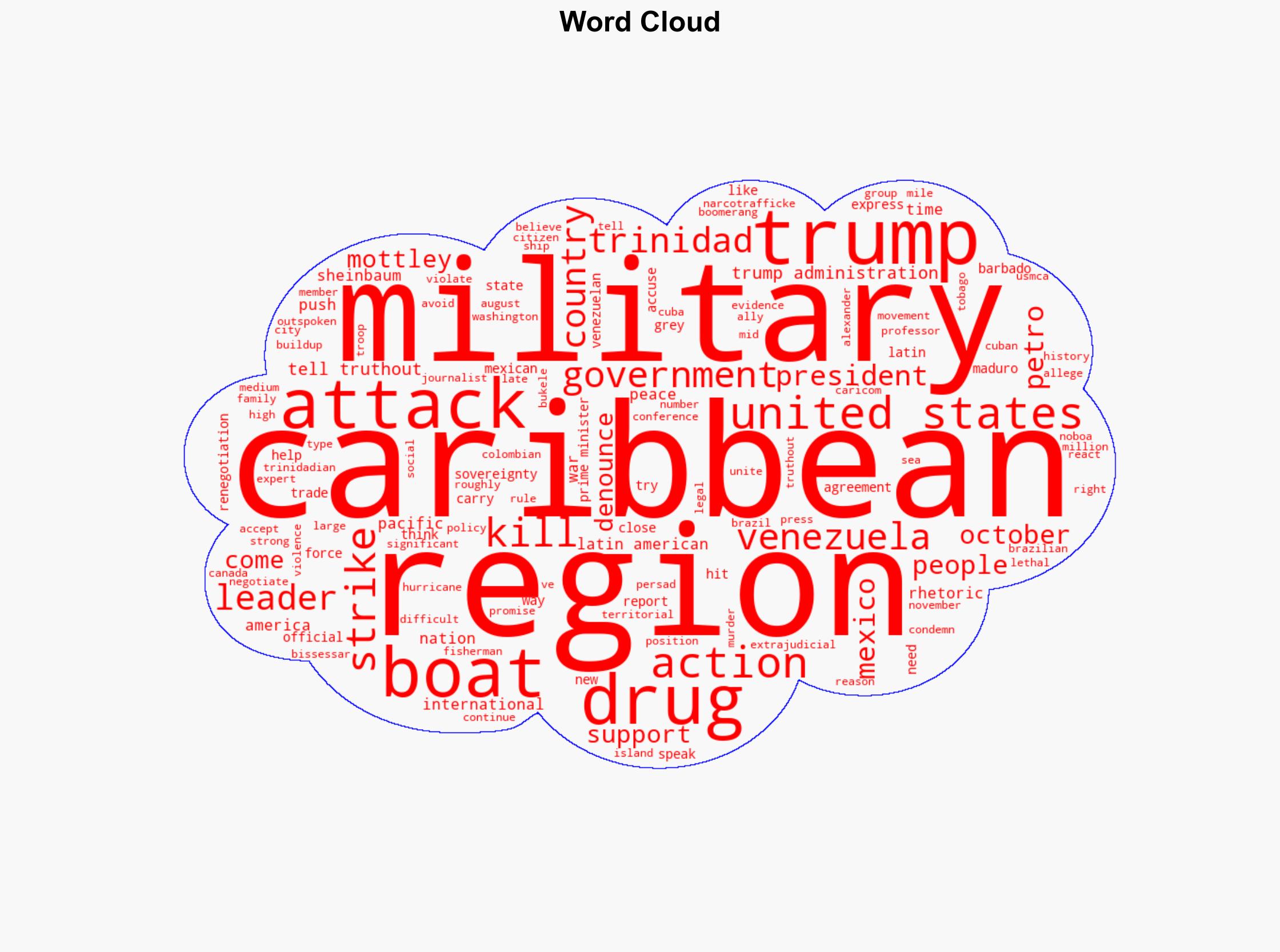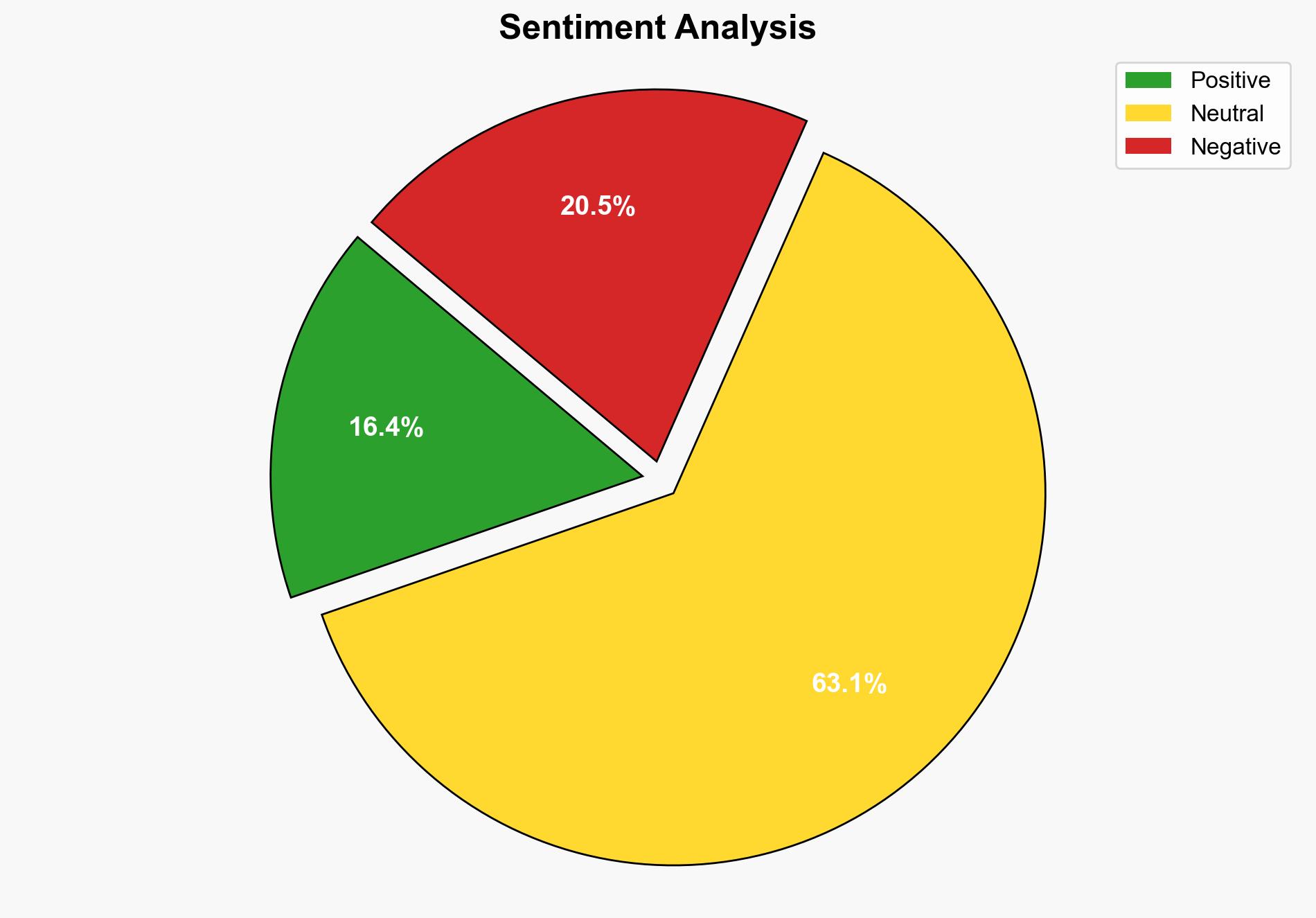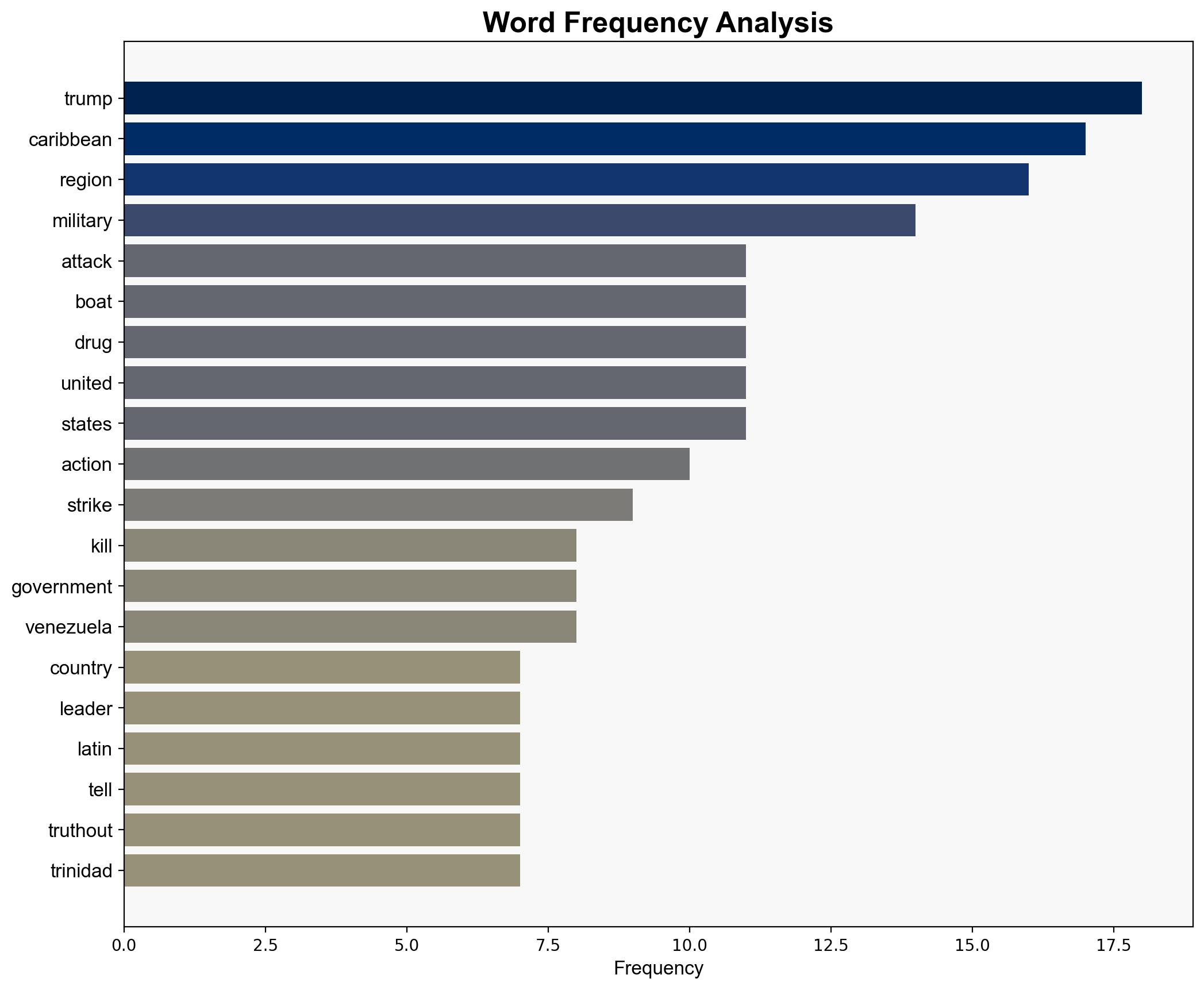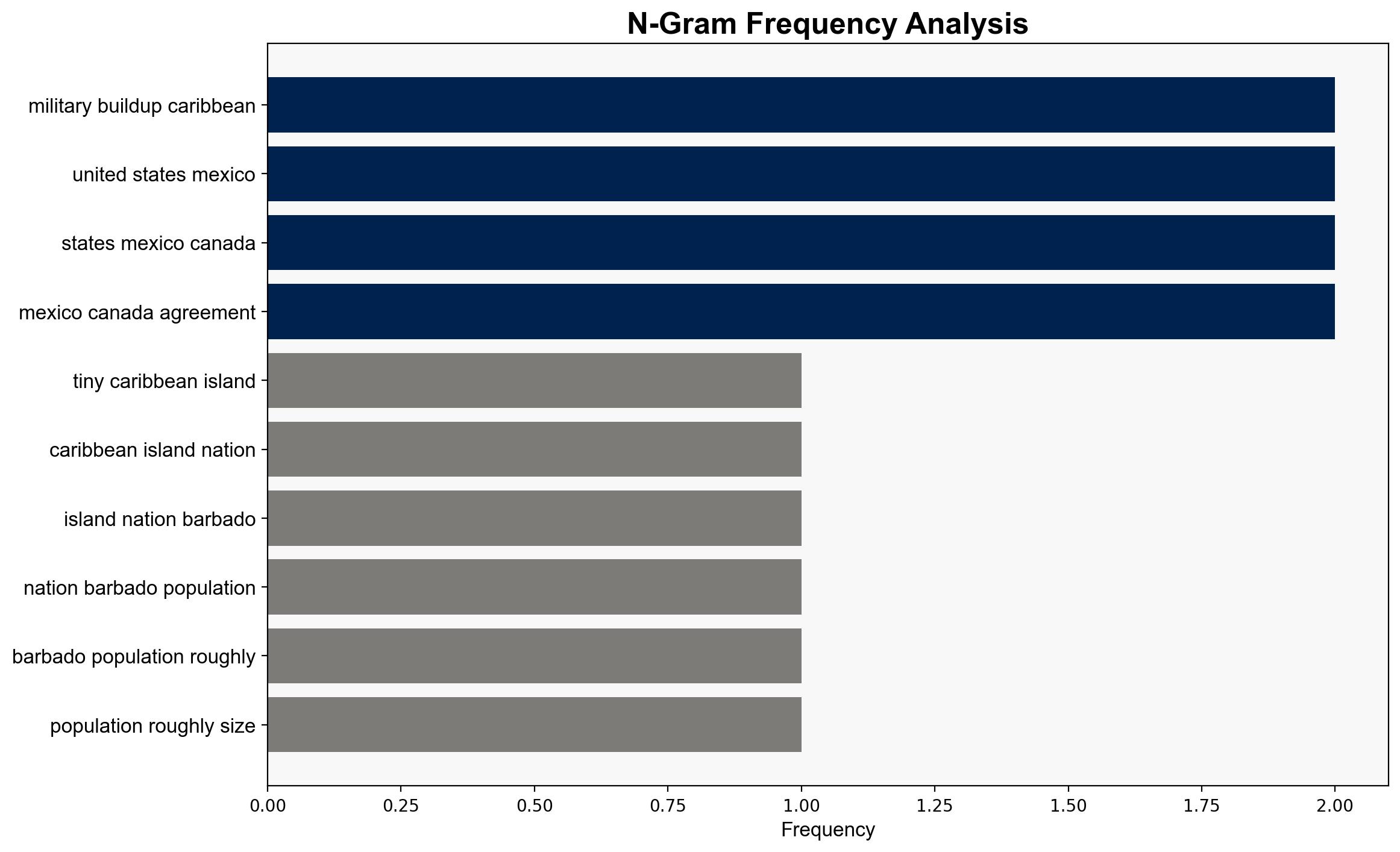Caribbean Leaders Call for Unified Latin American Resistance to US Attacks – Truthout
Published on: 2025-11-07
Intelligence Report: Caribbean Leaders Call for Unified Latin American Resistance to US Attacks – Truthout
1. BLUF (Bottom Line Up Front)
The most supported hypothesis is that Caribbean leaders are genuinely concerned about the increasing militarization and unilateral actions by the US in the region, which they perceive as a threat to regional stability and sovereignty. Confidence level: Moderate. Recommended action: Engage in diplomatic dialogues to address regional security concerns and explore cooperative security measures.
2. Competing Hypotheses
1. **Hypothesis A:** Caribbean leaders are uniting against perceived US aggression due to genuine concerns about regional sovereignty and peace. This is supported by statements from leaders like Mia Mottley and the unified stance of CARICOM members.
2. **Hypothesis B:** The vocal opposition by Caribbean leaders is a strategic maneuver to leverage international support and aid, particularly in the wake of natural disasters and economic vulnerabilities. This is suggested by the reliance on US aid post-hurricane and the economic ties highlighted by Alexander.
Using ACH 2.0, Hypothesis A is better supported due to consistent public statements and actions by regional leaders, while Hypothesis B lacks direct evidence of strategic manipulation.
3. Key Assumptions and Red Flags
– **Assumptions:** It is assumed that Caribbean leaders’ statements reflect genuine concerns rather than strategic posturing. Another assumption is that US military actions are perceived uniformly across the region.
– **Red Flags:** Potential bias in the source, given its critical stance on US actions. Lack of direct evidence linking US actions to regional instability beyond rhetoric. Inconsistent data regarding the nature and intent of US military operations.
4. Implications and Strategic Risks
– **Geopolitical Risks:** Increased tensions could lead to a regional arms race or alignments with non-Western powers.
– **Economic Risks:** Disruptions in US-Caribbean economic relations could exacerbate vulnerabilities.
– **Psychological Risks:** Heightened public fear and unrest, as seen in Trinidad, could destabilize governments.
– **Escalation Scenarios:** Misinterpretations or accidental engagements could lead to broader conflicts.
5. Recommendations and Outlook
- Engage in multilateral dialogues involving the US, Caribbean, and other stakeholders to address security concerns and prevent escalation.
- Enhance intelligence sharing and transparency to reduce misunderstandings.
- Scenario Projections:
- Best: Diplomatic resolutions lead to reduced tensions and increased cooperation.
- Worst: Escalation into military confrontations or economic sanctions.
- Most Likely: Continued diplomatic tensions with sporadic incidents of unrest.
6. Key Individuals and Entities
– Mia Mottley
– Ben Saul
– Kamla Persad-Bissessar
– Alexander
– Soyini Grey
7. Thematic Tags
national security threats, regional focus, geopolitical tensions, diplomatic engagement





